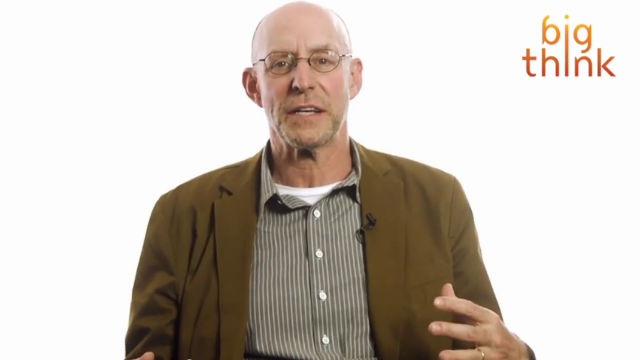How BBQ Transcends Race

Ed Mitchell is a renowned pitmaster in Raleigh, North Carolina. He owns a restaurant in Durham called Que. Mitchell can be considered not only a barbecue connoisseur but also a historian of the craft. Michael Pollan, the best-selling author of The Omnivore’s Dilemma and his latest Cooked: A History of Natural Transformation, met Michell during his Southern odyssey in search for the purist barbecue in the world.
He described a mural that Mitchell had in his restaurant that tells the story of the history of barbecue. In the clip of Big Think’s interview, Pollan gives a glimpse of that history, explaining how slaves from the Caribbean brought it to America, including the hot red pepper. As for those famous three letters, BBQ, Pollan explains: “Barbacoa is what they thought they were hearing in the Caribbean and that became barbecue. So it was a black contribution to southern American culture.”
It’s now more than a Southern staple: it also breaks down race divisions. As Mitchell explained to Pollan, barbecue transcends race. Pollan checked on this claim with a barbecue historian. Yes, a barbecue historian.
“When I was talking to historians of barbecue, and we now have historians of barbecue, they said that even during the tensest periods of racial strife, during the civil rights movement, if the good barbecue place in town was black, whites wanted to eat there and they would,” he says. “Barbecue is something that blacks and whites in the South share.”
For more stories and great insights from Pollan’s barbecue quest, watch this clip from Big Think’s interview:




